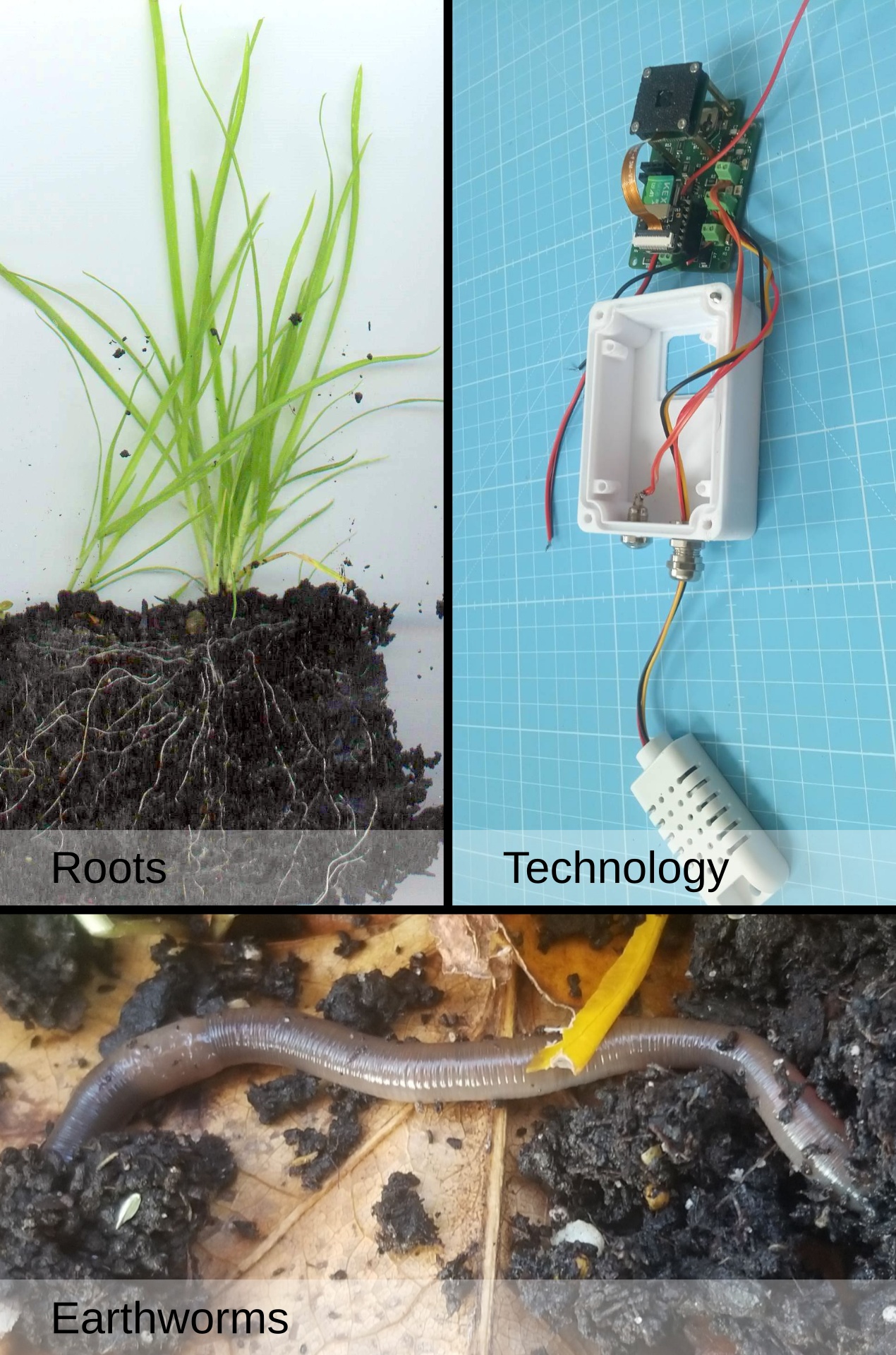PhD in Agricultural Ecology and Machine Learning: An Underground Video Tracking System to Characterise Novel Earthworm-Plant Interactions

Open PhD Position
Please also see the official posting. Deadline: 31 August 2024.
Project Summary
Start an innovative PhD focused on developing high-throughput methods using cameras and computer vision to explore the hidden world of earthworm-plant interactions. Earthworms play a crucial ecological role, and this pioneering approach aims to uncover their interactions with plant roots. This project is the first phase of a comprehensive 5-year initiative employing advanced technologies (imaging, acoustics, deep learning, remote sensing, etc.) to enhance our understanding of earthworms.
Project Description
Context
Soil health is the foundation of our food systems, yet we are losing it at an alarming rate due to our land use. To combat this, we must shift from extractive to restorative, circular agriculture. This paradigm shift requires extensive research on decomposers, particularly earthworms. Earthworms are essential for soil health due to their ubiquity and biomass, but their subterranean lifestyle poses significant observational challenges. Recent advances in remote sensing and deep learning offer a unique opportunity to study these elusive organisms.
Outcomes
As a successful applicant, you will develop “The Wormitron,” an innovative, open-source hardware system featuring cameras and 2D-terrariums to image earthworms and plant roots continuously under semi-controlled conditions. You will test hypotheses on the nature, timing, and implications (both physiological and evolutionary) of earthworm-root interactions. This project promises direct applications for sustainable agriculture and a profound understanding of these hidden ecosystem engineers.
Research Group
The successful student will be integrated the growing Digital Approaches for Resilient and Sustainable Agriculture (DARSA) group, started in 2022, at the Center for Quantitative Genetics and Genomics (QGG). Both the group and the centre are inclusive and multidisciplinary environments with a range of local and international collaborations. The research takes place at Aarhus University, a world-leading institution located in a vibrant city.
Applicant’s Profile and Eligibility
We believe that diversity makes us better at tackling complex problems. Therefore, we strongly support applicants with a diverse background and are committed to promote inclusion and equity. Applicants must have completed a Master’s degree (before January 2025) in experimental science (e.g., ecology, biology, engineering, experimental physics, etc.)
- Have experience in planning and conducting laboratory experiments (ideally, building custom setups).
- Have at least basic programming skills (in particular, experience working with scientific languages (e.g. R and Python)
- Be familiar with image processing, imaging techniques
- Have a strong interest and motivation for sustainability and agroecology
- Possess advanced collaborative and interpersonal skills
- Be fluent in English (written and spoken)
Supervision
Our primary goal is for our students to succeed by helping them to develop and achieve their career goals. As such, we support and help students in taking the project in their own direction, within the original scope, and encourage flexibility as well as new viewpoints as the project moves forward. The successful applicant should expect a weekly meeting with Quentin Geissmann, their direct supervisor. Students are encouraged to collaborate within and outside of the group, and will be given (funded) opportunities to present their research at international conferences. We also consider it the supervisor’s role to ensure students feel safe and included in their work environment.
Location and Facilities
The research takes place in the QGG at Aarhus University (AU). AU is a world-class university (the largest in Denmark), with outstanding opportunities for collaboration on this particular project. For this project, we have access to various High-Performance Computing platforms and workstations, including GPUs. In addition to these computational resources, we have a workshop suitable to prototype hardware (cameras, edge computing, …) in-house, and have access to larger infrastructure through our collaborations with the engineering department. Aarhus itself is a vibrant city with an active cultural life, a dynamic student community and a very high standard of living.
Administrative Considerations
Timeline
The application deadline is August 31th 2024. The expected start date is January 1st, 2025, but this is somewhat flexible (as it may depend on personal situations, getting a visa, etc). The total duration of the PhD is three years.
Stipend
The PhD salaries are set at the university level and defined in this table – the exact numbers depend on previous post-graduate work experience, and the taxation system is somewhat complicated, but expect to have a net salary of approximately 18,000 DKK (≈2,400 Euro) per month. Overall, Denmark is one of the countries where students earn the most.
Application Process
In order to ensure a fair assessment of all applicants, the graduate school implements an official procedure. Please refer to the formal offer on the university’s website, which will direct you to an online form. Candidates will be evaluated based on their CV, motivation statement, and reference letters. Shortlisted candidates will be invited for an interview (online or in person). The top candidate will be offered the position.
Questions
Meanwhile, do not hesitate to contact us if you have questions, or want to discuss your interest, ideas… When doing so, please enclose a CV and a brief description of your motivation.